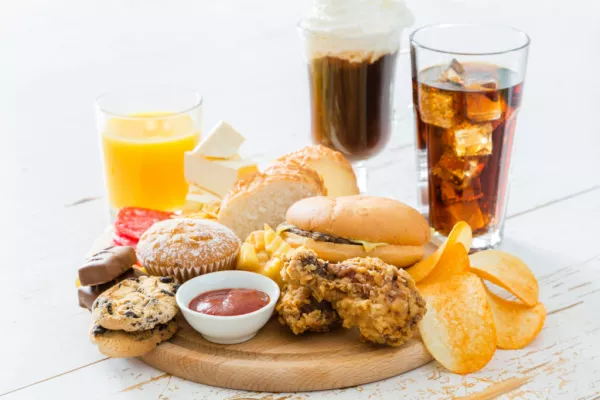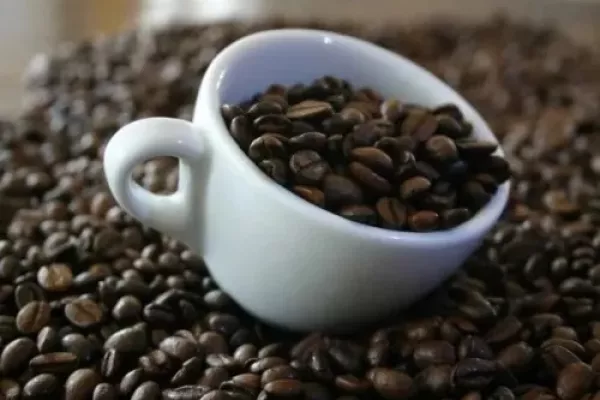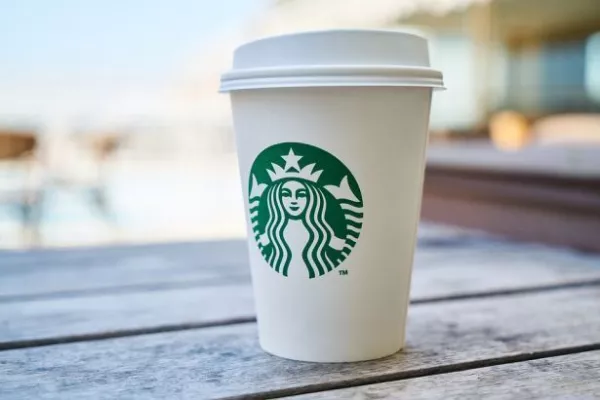Hospitality Ireland presents a round-up of global drinks and food news.
Military Veteran-Focussed Black Rifle Coffee To Go Public Via $1.7bn SPAC Deal
Black Rifle Coffee Company (BRCC), a coffee seller that focusses on military veterans, said on Tuesday it will go public through a merger with a blank-check acquisition firm in a deal that values the combined company at about $1.7 billion.
The deal with SilverBox Engaged Merger Corp I will be financed by up to $345 million of cash held in the trust account of the SPAC and commitments of about $300 million from other investors.
Shares of the SPAC jumped nearly 58% in early trade to a record high of $15.5 on the news.
The total capital available to Black Rifle at the close of the deal will be up to $545 million, the companies said.
Utah-based Black Rifle, founded in 2014, sells apparel and merchandise, apart from its flagship firearm-themed coffee roast blends.
As part of the deal, BRCC plans to reorganize as a public benefit corporation, meaning that while the company will remain a for-profit enterprise, it will continue to support social good.
BRCC and SBEA together are expected to donate more than 530,000 shares, valued at about $5.3 million, to the company's charitable foundation.
BRCC said its consumer business, which includes both subscription and non-subscription sales, saw a 92% jump in 2020 to $126 million. It also generates sales through wholesale retail from grocery chains such as 7-Eleven, Sam's Club, and Walmart, as well as company-operated and franchised retail coffee shops.
The deal is expected to close during the first quarter of 2022, after which the combined company will be named Black Rifle Coffee Inc.
Bottler Coca Cola HBC To Step Up Marketing Push After Strong Q3 Sales
Coca Cola HBC will step up investment in marketing next year, Chief Executive Zoran Bogdanovic said on Wednesday November 3, after the bottler posted higher third-quarter sales as people returned to visiting restaurants and pubs.
With input cost pressures high, the Switzerland-based company will also implement further "slight" price increases in the fourth quarter and 2022, it said.
The company, one of Coca-Cola Co's many franchisees worldwide, suffered a setback during the peak of the pandemic as hospitality venues closed and hit its wholesale business, while retail sales to customers also slipped.
However, overall volume growth remained strong with a 13.1% rise in the three months to September as HBC invested in sales via e-commerce channels. Product price increases in most of its markets also helped revenues.
HBC's out-of-home channel accounts for nearly 40% of its total revenue.
"We've been ramping up (investments) already this year in marketing because that was the key thing that we decreased last year...we plan to further step up next year," Bogdanovic told Reuters, without quantifying the investments.
A rebound in the number of COVID-19 cases being reported has forced economies to re-impose some curbs, but HBC is hoping increased marketing spend will further boost demand regardless, and that higher prices will help it navigate any "aftershocks".
Bogdanovic said price rises so far have not hurt demand for its products.
An array of factors, including global supply chain disruption, labour shortages and increasing demand, have forced companies like PepsiCo and Coca Cola to pass on some higher costs to customers.
HBC posted third-quarter sales of €2.12 billion, well above analysts' average expectation of €2.04 billion and the €1.83 billion it reported last year.
U.S. beverage giant Coca-Cola holds a roughly 23% stake in the company.
Services Group ISS Lifts Outlook As Customers Reopen Offices
Danish business services group ISS on Thursday November 4 said that approximately two thirds of its largest customers are now allowing about half of workforces to return to offices, up from only 10% at the end of July.
ISS provides services ranging from call centres to office cleaning, catering and security for more than 200,000 customers globally and surveys its largest customers every two weeks, providing a snapshot of developments at workplaces around the world.
"We've seen a rapid shift...that's an interesting trend and we would expect that number to continue to go up over the next couple of months," Chief Executive Jacob Aarup-Andersen told Reuters.
"We've gone from 10% to two thirds of global workplaces being open again," he said, adding that it remains unclear how many people are actually going back.
The ISS share price rose 6.6% in early trade after the company reported forecast-beating sales and upgraded 2021 guidance. It raised guidance for both its operating margin and free cash flow, adding that results were boosted by its turnaround plan and the reopening of customers' offices.
Third-quarter sales came in at 17.5 billion crowns compared with the 17.3 billion expected by analysts in a poll compiled by the company. ISS now expects an operating margin of 2.5%, up from the previously forecast 2%.
Major Commodities Traders Sue Brazil Coffee Farmers For Defaults
Commodities traders including Louis Dreyfus, Olam and Volcafe are pursuing legal action against hundreds of Brazilian coffee farmers whose failure to deliver on pre-agreed sales has left the merchants exposed to losses, according to sources and documents seen by Reuters.
Arabica coffee prices have rallied some 60% this year due to climate turmoil in Brazil. The price surge has tempted farmers to default on sales, tightening supply in a commodity that, like many others, has been affected by shipping delays and reduced availability of labor.
All three of the world's largest arabica producers - Brazil, Colombia, and Ethiopia - are experiencing increased rates of default, where farmers fail to deliver coffee at agreed-upon prices so they can attempt to re-sell at current higher prices.
Lawyers told Reuters this is the first time in decades that scores of coffee farmers are defaulting in Brazil, which grows about half the world's arabica beans. Defaults have spiked in other commodities like soybeans, where merchants have resorted to using satellites and deployed lawyers to go after farmers who tried to resell already guaranteed crops, as prices in that market, too, spiked.
Many court proceedings in Brazil are not public.
Volcafe, the coffee trading arm of ED&F Man, one of the world's largest commodity trading firms, has had problems with about 5% of its contracts in Brazil, according to the company's North and South America director, Nicolas Rueda.
"We managed to negotiate and find a solution in most cases. Only in cases when talks ceased we resorted to the courts," he said, without identifying the number of cases the firm was working on.
Olam confirmed cases of non-compliance and legal action but said they are not widespread. Louis Dreyfus did not return a request for comment.
Farmers are also defaulting in Colombia and Ethiopia, the world's second and third largest arabica producers. With Brazil, the three countries account for more than two-thirds of global arabica output.
"The incentive to default has never been higher (and) these guys are not just defaulting on one (season's) crop. You're looking at the tip of an iceberg here. It will get worse over next 12 months or longer," said a Europe-based trader at one of the world's largest coffee traders, who was not authorized to speak on the record.
Forward sales volumes in Brazil have plunged due to both defaults and severe shipping backlogs, said two other global traders, exacerbating already tight global coffee supplies.
The high rate of defaults could push futures, already near seven-year peaks, up further as the market depends on forward selling from Brazil to temper price rises, said a second Europe-based trader at a global merchant.
"There should be a continuous flow of (sales) from Brazil but everything's shut down. Its scary how quiet it is. We can't buy coffee. Our middleman can't get his coffee," he said.
"Put together with (shipping) issues, the defaults mean the availability of coffee in the U.S., Europe and Japan is getting more and more tenuous," he said.
Evidence of the tightness can already be seen in ICE exchange stocks <KC-TOT-TOT>, which have fallen some 11% over the past month alone. The stocks are a cheap and reliable supply source relative to the physical market.
Law firm Santos Neto Advogados is working on about 30 lawsuits related to coffee defaults, said Fernando Bilotti Ferreira, a partner at the firm. He said he is acting on behalf of four trading houses but declined to name them.
The size of the defaults vary from 500 bags to as high as 4,500 bags. At current market prices, a contract for 4,500 bags would be worth around 5.8 million reais ($1.03 million).
Many traders involved in court cases have been accepting farmers' requests to postpone deliveries into 2022, said Cristiano Zauli, a lawyer working in Minas Gerais, Brazil's largest coffee producing state. He has been involved in around 100 court cases in coffee this year and acted as a mediator in hundreds more pre-trial talks, he said.
Zauli declined to identify his clients.
FINBuyers who filed court cases are seeking legal orders allowing them to get their coffee from farms with the help of law enforcement officers, according to court documents in the states of Sao Paulo and Minas Gerais.
In one case, trader Olam had to go to two different locations to find the 750 bags it had bought from a farmer in Alfenas, Minas Gerais.
In another, Louis Dreyfus was trying to find 1,000 bags it bought from a farmer in Patrocinio, another Minas Gerais municipality. The trader's lawyer told the judge that the farmer re-sold the coffee to a local merchant, where it was delivered, according to the legal filings.
Two local Brazilian coffee brokers told Reuters defaults have hit practically all market participants, including coffee co-op Cooxupe, the country's top exporter.
Cooxupe said it normally negotiates with farmers facing problems but added it cannot "treat associated farmers differently," meaning the rules apply to all.
News by Reuters, edited by Hospitality Ireland. Click subscribe to sign up for the Hospitality Ireland print edition.









